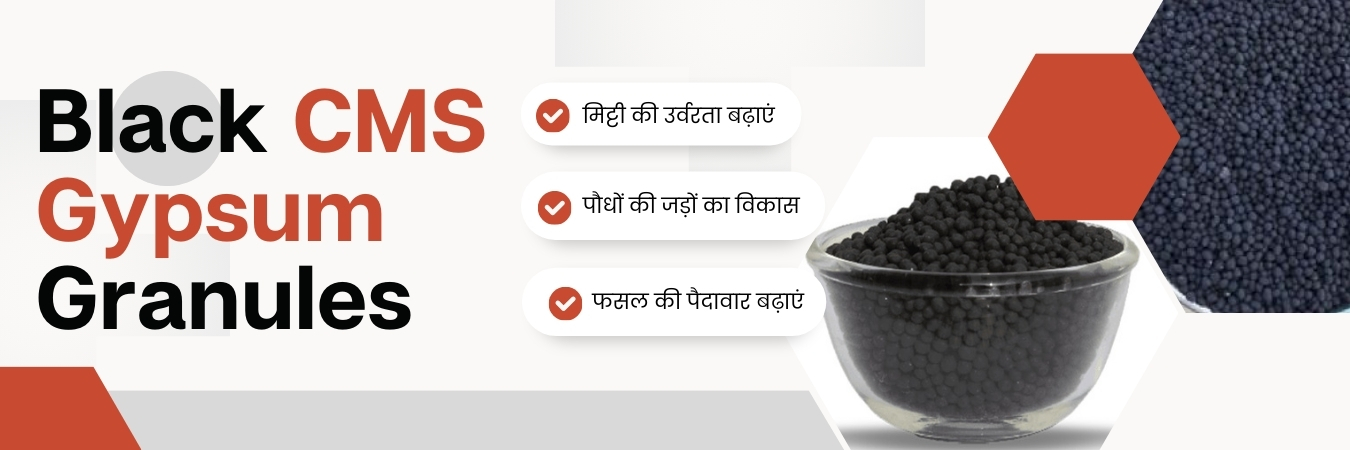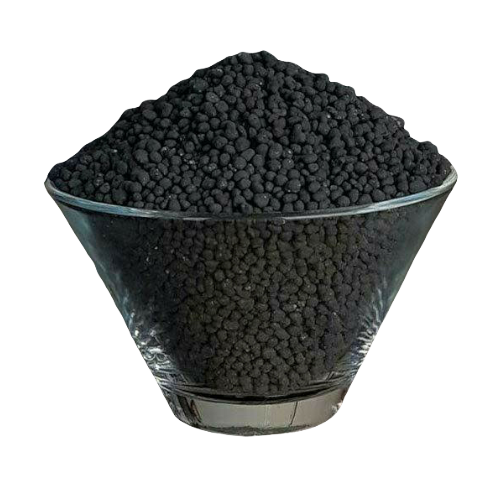Those seeking to improve soil health and boost crop production while decreasing their fertilizer requirements should visit Gypsona. You’re in the right place! The top-grade Black CMS Gypsum Granules manufactured by Gypsona serve as a trusted all-natural soil conditioner utilized by Indian farmers throughout the country.
Gypsum Plaster Manufacturers Rajasthan

Black CMS Gypsum Granules
Black CMS Gypsum Granules
| Form | Granules |
|---|---|
| Purity | 98% |
| Usage/Application | Agriculture Fertilizer |
| Packaging Size | 25-50 Kg |
| Country of Origin | Made in India |
| Packaging Type | Jumbo Bags |
| Brand | Gypsona |
| Product Code | Gypsona – 1010 |
| Price | 3200/ton |

What Are Black CMS Gypsum Granules?
Natural soil nutrients derived from high-purity gypsum appear as Black CMS Gypsum Granules which people commonly refer to as CMS Gypsum Granules. The dark granules contain essential secondary nutrients Calcium (Ca) Magnesium (Mg) and Sulphur (S) which function as critical plant nourishment elements.
Black CMS Gypsum shows heightened agricultural value because its specific formulation helps build soil structure and maintains water content for promoting natural plant growth through sustainable nutrient disbursement.
- It is utilized for cell division formating.
- It helps in nitrogen metabolism.
- It reduces the respiration rate.
- It increases the fruit-setting.
It influences the microbial activity.
- It is a activator and component of many plant enzymes.
- It is a key element of chlorophyll production.
- It helps in the utilization and mobility of phosphorous.
- It increases the iron utilization in crop plants.
- It helps in the uniform maturity of crops.
- It is the integral part of amino acids.
- It promotes the nodules formation in legume crops.
- It is partially involved in chlorophyll formation.
Key Benefits of Gypsona's CMS Gypsum Granules
Our Black CMS Gypsum Granules deliver triple-action benefits thanks to their natural mineral content:
- Calcium (Ca) – Strength & Structure
- Supports cell division and wall formation
- Aids nitrogen metabolism
- Enhances fruit setting and reduces respiration rate
- Stimulates soil microbial activity
- Magnesium (Mg) – Chlorophyll Booster
- Vital for chlorophyll production
- Promotes enzyme activation
- Enhances phosphorus mobility
- Improves iron uptake
- Encourages even crop maturity
- Sulphur (S) – Protein Power
- Essential for amino acid formation
- Supports nodule development in legumes
- Aids in chlorophyll production for greener, healthier crops
Long-Lasting & Efficient
- One application lasts up to 3 years
- Water immediately after applying to activate nutrient absorption
- Suitable for all types of soils and all crops
- Can be used year-round
Caution: Over-application may lead to nutrient imbalance. Always follow recommended guidelines.
Versatile Use
These granules serve as carrier materials and can be coated with:
- Humic and fulvic acids
- Seaweed extracts
- Fungicides or pesticides
- Custom micronutrient blends
Perfect for integrated nutrient management programs.
Why Choose Gypsona?
- High-Purity Gypsum – 98% purity for powerful soil impact
- Eco-Friendly – 100% natural and sustainable
- Farmer-Friendly Packaging – Available in 25–50 kg jumbo bags
- Flexible Application – Can be broadcasted, drilled, or mixed with other inputs
- Scientifically Formulated – Balanced pH (around 7) and mineral ratio
Quick Usage Guide
- Spread the Black CMS Gypsum Granules evenly across the field
- Apply water immediately to activate the nutrients
- Follow crop-specific recommended dosage rates
- Monitor soil and crop response over the season
| Crop Type | Dosage (kg/acre) |
|---|---|
| Cereals & Pulses | 100–150 |
| Vegetables | 150–200 |
| Fruit Crops | 200–250 |
| Oilseeds | 100–150 |
See the Difference in One Season
With proper application, you can expect:
- Improved root development
- Better nutrient uptake
- Higher yield and quality
- Healthier, more resilient plants
Order Your Soil Solution Today!
Ready to take your farm productivity to the next level? Choose Gypsona’s Black CMS Gypsum Granules and give your crops the balanced nutrition they deserve.
- Available in bulk
- Shipping across India
- Expert support at every step

